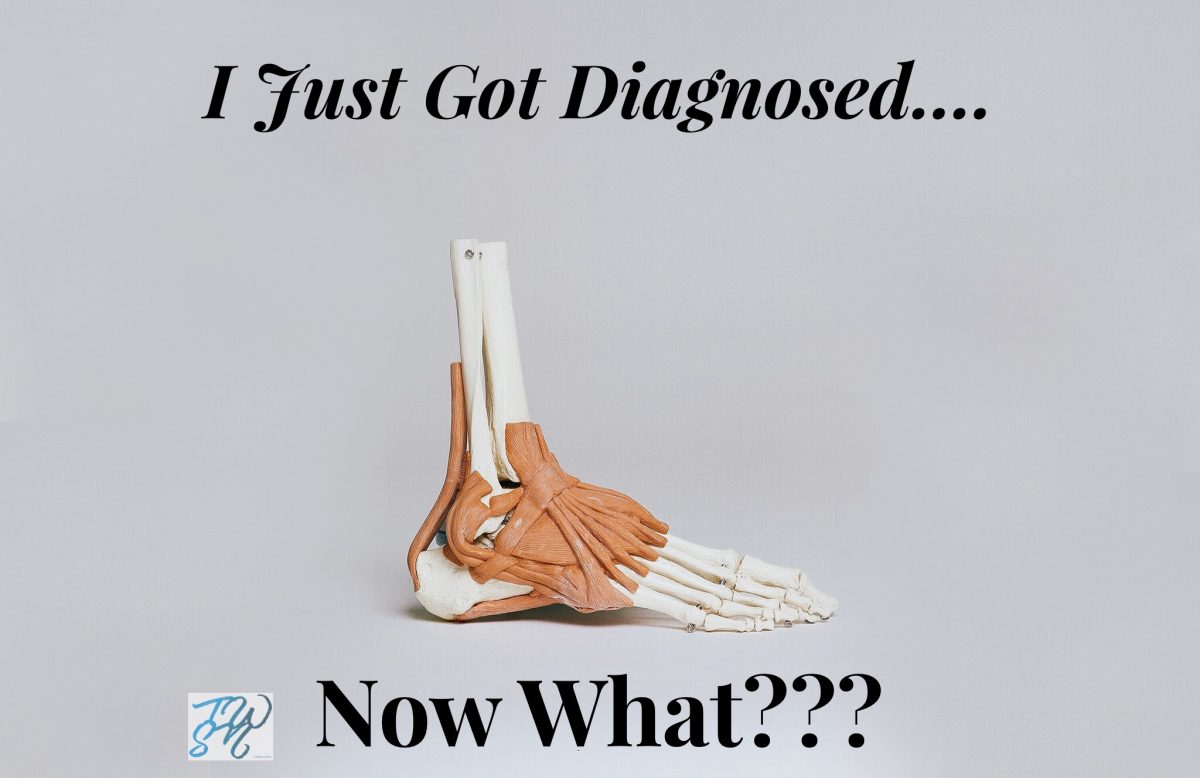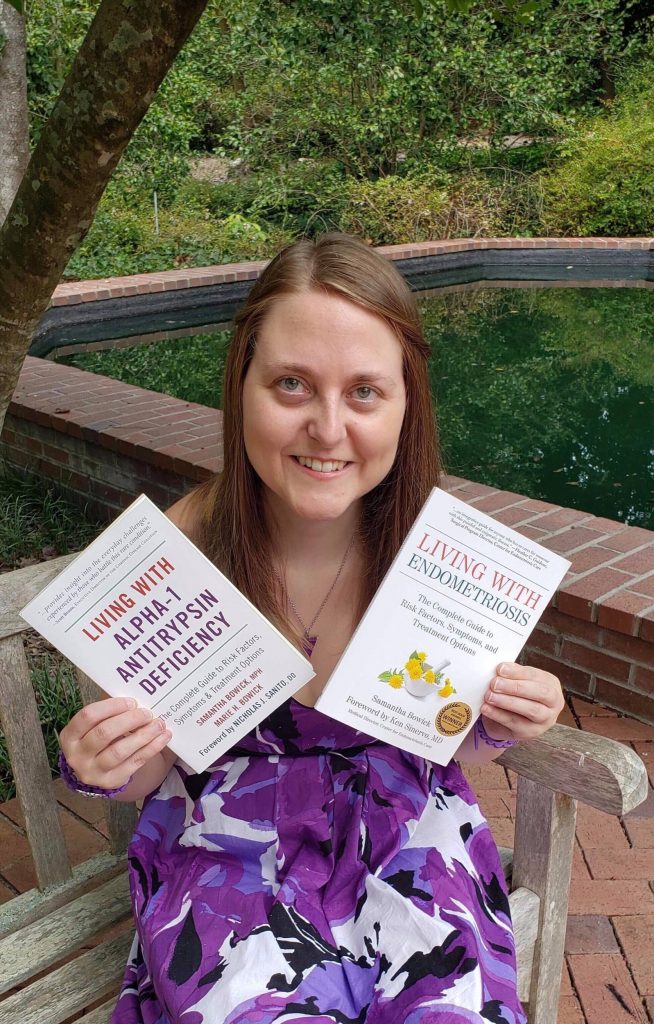It’s been months…….maybe years. You’ve been suffering alone because no one understands what’s been going on. The doctors have been shuffling you back and forth because they don’t know what to do with you. You’ve heard “Well…..maybe it could be this. Or it could be that!” However they are really just grasping at straws and making guesses because no one really has any concrete idea. Until you finally come in contact with that ONE doctor who follows that ONE path and found you a DIAGNOSIS! Which feels like you won the lottery for a bit. But now what??
Once you get that diagnosis it’s a wonderful feeling. It’s amazing to know you aren’t crazy and there is something really wrong with you even though many had a hard time believing you all this time. But where do you go from here? What do you do now that you got the diagnosis!?? The diagnosis is grand but it’s only words on paper or in a chart. Until something is being done the diagnosis is still no help to me. So what can do after diagnosis to make that time more beneficial to you? I recently took to the Facebook group I Co- Facilitate and asked them the question “I’ve been diagnosed now what!?” So Let’s take a look at the TOP 5 responses I received.
1. The first thing you really need to do after a diagnosis no matter the size, is take it all in and absorb it. Once that initial shock has worn off start doing your own RESEARCH! I stress this because during the first couple of initial appointments after you get your diagnosis you are going to have so much medical jargon thrown at you. No matter how prepared you feel you are there is no way to avoid feeling totally overwhelmed. But the more research you do the less overwhelmed you will feel. Also if you have done your research you will be able to have a good conversation with your physician about your condition(s), treatment and longevity, rather than just having all of that thrown at you!! Doing your research also allows you to become a vital part of the treatment team, because in my eyes we are the most vital part of that team. Sadly I’ve seen it too many times that patients don’t research because they “trust” their provider and are “in good hands!” Let me make this clear no matter how much you trust your provider or how great of hand you are in, you should ALWAYS do your own research!!
“Absorb it, after the initial shock , research your diagnosis, find a support group and learn more of what to expect.” – Jeanette Alston-Watkins
2. After you get passed the shock and that initial phase where you spend all your free time searching tirelessly about your new diagnosis. You’ll reach a point where you want to meet others who have similar issues. You’ll crave the understand that can only come from others who live a similar walk. I encourage you to do this with caution. You’re probably reading this thinking I’ve finally completely lost it. But I haven’t. I say this because it can be quite hurtful when you are new to the world of your condition. You will see people who have the same diagnosis who are much worse off than you and nearing the end of their life. And you will also see people who you would never guess were such because they may be in an upswing or remission state of their condition. When that happens you have to remember that you can NEVER compare your journey to someone else’s because everyone journey will be different!!
“Accept the fact sooner than later that every body is different and reacts differently. Stay positive!. – Cathy
3. The further you get into your chronic illness journey you will get to know your physicians better. Some you will like even more with every passing appointment. While others you wouldn’t trust further than you could throw them. And THAT IS OK, and part of the journey. Just like you are not going to become best friends with everyone you meet on the street. You won’t jive with every doctor. In fact it’s pretty normal. The good thing is that there are HUNDREDS (or maybe more) doctors around the country the specialize in that area. So if that happens to you, just start making appts with other specialists in your area! They may not always be super close and may require some driving. But when you have a chronic illness you need a doctor that you believe in and who trusts you to best treat your case.
“If you don’t like your Dr then find another one, your going to need a Dr you feel comfortable with and trust” – Angie Gries
4. I think one of the hardest lessons any spoonie (person with a chronic illness) needs to learn is to accept the disease you have as well the progress of said disease. If you can’t come to accept it as you are diagnosed it will be harder to accept it as the disease starts to progress and impact your life more. Also you can never expect your family and friends to accept what’s going on in your life if you can’t. If you are always playing it off like you are healthy, but then get mad that they don’t understand how sick you are, that’s not right. They will never understand what’s really going on if you don’t learn to accept your disease process and share it with those closest to you early on. In the majority of cases the people closest to you just want to know what is going on and what they can do to help. They don’t want to see the you that you think they do. They are strong, they can handle the truth.
“It’s so hard to hear right now, but accept the progress of your illness, because if you don’t you will feel it later, you will fail yourself later. It takes time, you deserve the time it takes to heal emotionally. Let others understand you, the real you with your new diagnosis, once you accept it.” Diagnosed with SLE in 2012 & inflammatory polyarthritis in 2016. – Alyssa Surridge
5. Find a good support group. It doesn’t matter where the group is, whether it is in person or online. You just need one. That being said I encourage you to find a group outside of your friends and family and I’ll tell you why. Your friends and family are great for the day to day stuff but when it comes to the health stuff you need someone who lives it. You BFF may be the best person alive, but as hard as she tries she can never fully understand what it is like to live with the disease you have simply because she doesn’t. So I encourage all of you to find a group somewhere of people with conditions similar to yours that you can talk to when you just need to vent about your health. “Find a support group and make sure you have a great support system!” – Melanie Bettis
I hope these give you a good idea of the first few steps you should take after getting a big diagnosis. In review you need to take time to research you condition for your understanding, but also so you can have good discussions with your provider about treatment plans and such so you can be a part of your care team since you are the most important part. However this is a step that many forget or chose to take because they trust their doctor. As I said above no matter how much you trust your dr you always need to be doing your own research. Next you need to remember to never compare your health care journey to anyone else’s. No two will ever be the same and you are likely leading yourself down a path you don’t want to walk. You should however, remember that it is perfectly fine to change doctors. If you don’t like yours that’s okay. You are not going to get along with them all. In fact you are paying them to work for you and if can’t get along or they aren’t on the same path it’s time to move on. Lastly, FIND a support group. There are hundreds of thousands of not millions out there for every kind of issue you can imagine. So try a few and find the one you like best. You want one where you fit in and feel like you fit and jive well. There should be no drama or crazy actions. A support group should be that supportive and soothing. I hope this has helped you if you have recently been newly diagnosed. Ifs a difficult road at first but it is one you can travel with the help of others!!
With Love,
Amber



